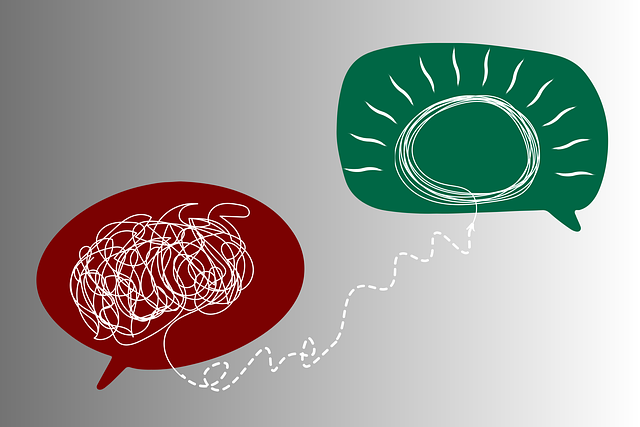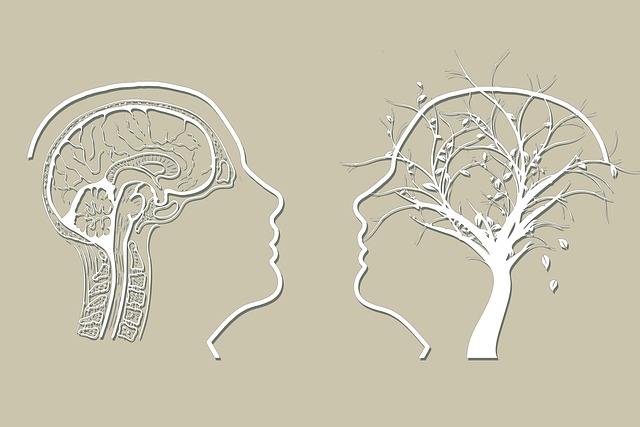Mental healthcare for young children must prioritize cultural sensitivity to ensure effective therapy. Therapists can leverage hypnosis, an adaptable tool, to cater to diverse cultural backgrounds and emotional expressions, fostering safe and supportive environments. By addressing cultural disparities through mental health policy advocacy, inclusive practices benefit all children, enhancing therapy outcomes and trust between providers and families. Continuous training in cultural competence, including workshops and seminars, equips professionals to offer tailored trauma support and navigate language barriers, revolutionizing therapy for young children with a focus on hypnosis.
Cultural sensitivity is a cornerstone of effective mental healthcare, especially in diverse societies. This article explores key aspects of providing culturally responsive care, focusing on therapy for young children and the unique role of hypnosis. We delve into the impact of cultural diversity on mental health practices, highlighting challenges and offering solutions. Additionally, continuous training in cultural competence is examined as a vital tool to enhance outcomes, ensuring every client receives compassionate, tailored support. Discover how these strategies revolutionize therapy, especially in treating young minds through hypnosis.
- Understanding Cultural Diversity in Mental Healthcare
- The Impact of Cultural Sensitivity on Young Children's Therapy
- Hypnosis as a Culturally Responsive Practice
- Overcoming Barriers: Challenges and Solutions
- Enhancing Care through Continuous Cultural Competence Training
Understanding Cultural Diversity in Mental Healthcare

In the realm of mental healthcare, understanding cultural diversity is paramount to delivering effective therapy for young children. Each child enters the therapeutic space with a unique cultural lens that shapes their experiences and perceptions. For instance, what might be considered a sign of distress in one culture could be a normal expression of emotion in another. Hypnosis, as a complementary approach, can be tailored to respect these differences, ensuring emotional healing processes are culturally sensitive.
Mental health policy analysis and advocacy play a crucial role in recognizing and addressing these cultural disparities. By integrating diverse perspectives into mental wellness practices, we can improve outcomes for all children, regardless of their background. This inclusive approach not only enhances the effectiveness of therapy but also fosters trust and collaboration between healthcare providers and families from various cultural backgrounds.
The Impact of Cultural Sensitivity on Young Children's Therapy

Cultural sensitivity plays a pivotal role in the effectiveness of therapy for young children, ensuring that their unique needs and experiences are understood and addressed. In a diverse society, mental health professionals must be equipped to navigate various cultural contexts to provide the best care. This approach is especially crucial when working with young children, as their early experiences shape their emotional regulation and mental health awareness.
Children from different cultural backgrounds may exhibit varying behaviors and communicate their emotions in unique ways. For instance, some cultures might emphasize collective family dynamics, while others value individual expression. A culturally sensitive therapist can adapt hypnosis techniques to cater to these differences, fostering a safe and supportive environment. By recognizing and embracing these variations, therapists can enhance the overall therapy experience, promoting emotional well-being and even boosting confidence in young clients.
Hypnosis as a Culturally Responsive Practice

Hypnosis offers a unique and culturally responsive approach to therapy for young children, especially within diverse communities. It is a non-invasive practice that can facilitate emotional healing and positive behavioral changes. By incorporating hypnosis sessions into mental healthcare, therapists can create a safe and supportive environment, fostering trust and engagement from children from various cultural backgrounds. This technique allows for a deeper exploration of the child’s thoughts and experiences while respecting their individual beliefs and values.
For instance, self-awareness exercises guided by hypnosis can help young clients identify and manage their emotions, thereby reducing anxiety and improving their ability to navigate interpersonal conflicts. These sessions can also include culturally relevant content, teaching children coping mechanisms tailored to their specific backgrounds. Conflict resolution techniques, when presented through hypnosis, may offer a unique perspective on challenging situations, enabling children to develop new strategies for peaceful interaction. Additionally, community outreach program implementations inspired by this practice can engage families and promote understanding, ultimately enhancing the overall cultural sensitivity of mental healthcare services.
Overcoming Barriers: Challenges and Solutions

Overcoming barriers to providing culturally sensitive mental healthcare is essential for ensuring effective treatment and support, especially when working with young children. One significant challenge lies in adapting therapeutic approaches for diverse cultural backgrounds. For instance, traditional therapy methods might not resonate with children from non-Western cultures, hindering their engagement and progress. Here, incorporating techniques like hypnosis can be a game-changer. Hypnosis allows therapists to guide young clients into a state of deep relaxation, making it easier to explore and address underlying issues while fostering a sense of trust and openness.
To enhance cultural sensitivity, therapists should engage in continuous professional development, including training in coping skills development tailored to different cultural contexts. This equips them with the knowledge to offer trauma support services that are respectful and relevant. Additionally, social skills training can help young patients from diverse backgrounds learn and practice appropriate interactions, improving their overall well-being and ability to navigate social environments. These strategies collectively contribute to creating an inclusive and effective therapeutic space.
Enhancing Care through Continuous Cultural Competence Training

In the realm of mental healthcare, especially when catering to diverse communities, cultural sensitivity is paramount. Continuous training in cultural competence is a game-changer that enhances care for young children across various backgrounds. This training equips therapists with tools to navigate complex cultural landscapes, ensuring sessions are inclusive and effective. By fostering an environment where therapy for young children goes beyond language barriers and encompasses emotional understanding, practitioners can provide trauma support services tailored to each child’s unique needs.
Regular workshops and seminars focused on cultural sensitivity in mental healthcare practice are essential to prevent burnout among professionals while promoting holistic healing. These sessions explore various topics, including unconscious biases, cultural norms, and the impact of historical traumas. Such education enables therapists to offer hypnosis as a therapeutic tool, respecting each child’s cultural boundaries and beliefs, thereby revolutionizing their approach to young clients’ mental well-being.
Cultural sensitivity is an indispensable aspect of mental healthcare, especially when treating young children. As highlighted in this article, understanding cultural diversity and incorporating culturally responsive practices like hypnosis can significantly enhance therapeutic outcomes. By addressing barriers through continuous training and education, mental health professionals can ensure that therapy for young children is effective, inclusive, and respectful of diverse backgrounds. This approach not only benefits individual patients but also fosters a more equitable and accessible healthcare system.














